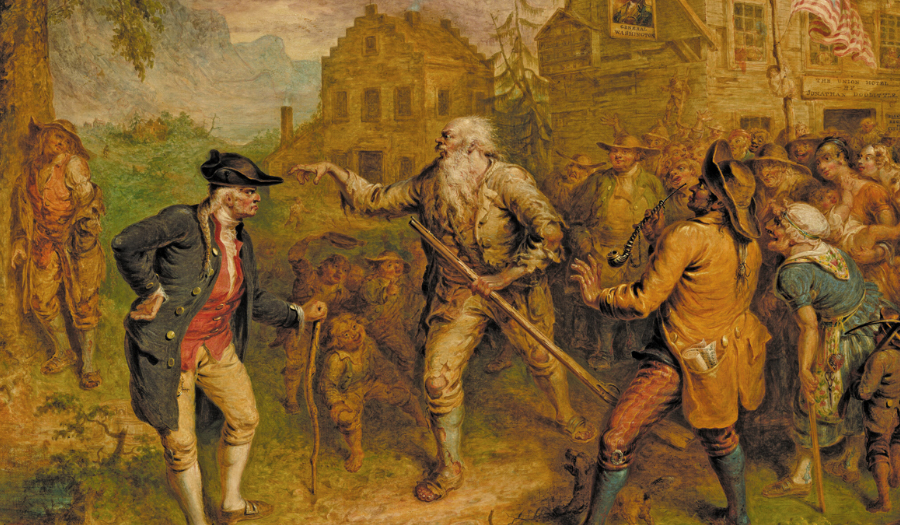
Ever heard North Carolina called the Rip Van Winkle state? Know why? Know who Rip Van Winkle was? Let’s start with the last question first. Early American author Washington Irving wrote a short story about a man who slept for 20 years only to wake up in a world that had passed him by. The story demonstrated the value of progress and in the early 19th century NC wasn’t making any.
It seems the Old North State, as it has since been called, was happy to let the world spin in its own direction, with no heed to the newest trends and accomplishments. While the rest of the new nation sought to expand, North Carolinians seemed content to doze. The legislature changed little and most were happy to let it ride since no new laws meant no new taxes. Some characterized the citizens of NC as “in a state of moral degradation.”

Photo: An 1849 painting of Rip Van Winkle.
From days well before the American Revolution, North Carolinians had been staunchly independent which was a good thing. Yet their “it was good enough for my grandfather, so it’s good enough for my children” attitude began to take its toll on progress. Commerce, education, the arts all suffered from a lack of interest and effort.
Not everyone suffered from this malaise. Archibald Murphey recognized the value of progress and urged his fellow citizens to get busy. In 1799, Murphey graduated from the University of North Carolina with honors, became a lawyer and a businessman. Unwilling to sit around and wait for things to happen, he got himself elected to the General Assembly. While there he outlined a plan that included publicly financed education, investments in infrastructure and a change to North Carolina’s constitution to make progress easier to accomplish.
All those measures required effort and money, which most in the legislature were against. The next year he was out of office. But that did not stop Archibald Murphey. He served for a few years as a judge but his real cause was helping North Carolina grow. At that time most did not share his vision for progress. He put forth a strategy to improve the state’s network of roads, as well as construct new canals, all to facilitate economic growth in a state that had been left behind. North Carolina, outsiders said, was where Rip Van Winkle went to sleep. Since apparently everybody except Murphey slumbered in the state, there was no one here to wake up the fictional character.
Archibald Murphey never saw his proposals come to fruition. While spending time creating a better tomorrow for his state, he neglected his own future. Financial woes got so bad that he spent time in jail for debt just a few years before he died in 1832. He might have gone down in history as just a dreamer, the only one around trying to wake up Rip. Instead, we now regard him as a man ahead of his time.
It only took three years after his death for the North Carolina General Assembly to wake up, realize what Murphey was saying and rewrite the state constitution. In it, lawmakers addressed many of the problems Murphey pointed out. Public schools, internal improvements were all part of the state’s new look at itself, thanks to the foresight of the late Archibald Murphey.
The town of Murphy named itself (minus the “e”) after Archibald which brings up a curious discovery. As it turns out, most of the towns and counties of western North Carolina are named for leaders from the east. There is a reason for that. When forming, political power resided in the eastern section of the state. To gain support, organizers of counties like Burke, Caldwell, Iredell, and others flattered leaders down east to gain support. The tactic was blatant, but it worked.
Unless you are heading west toward the end of the state, you probably never utter the word Murphey, but here is a North Carolinian who deserves to be remembered. He woke us up.








